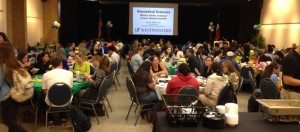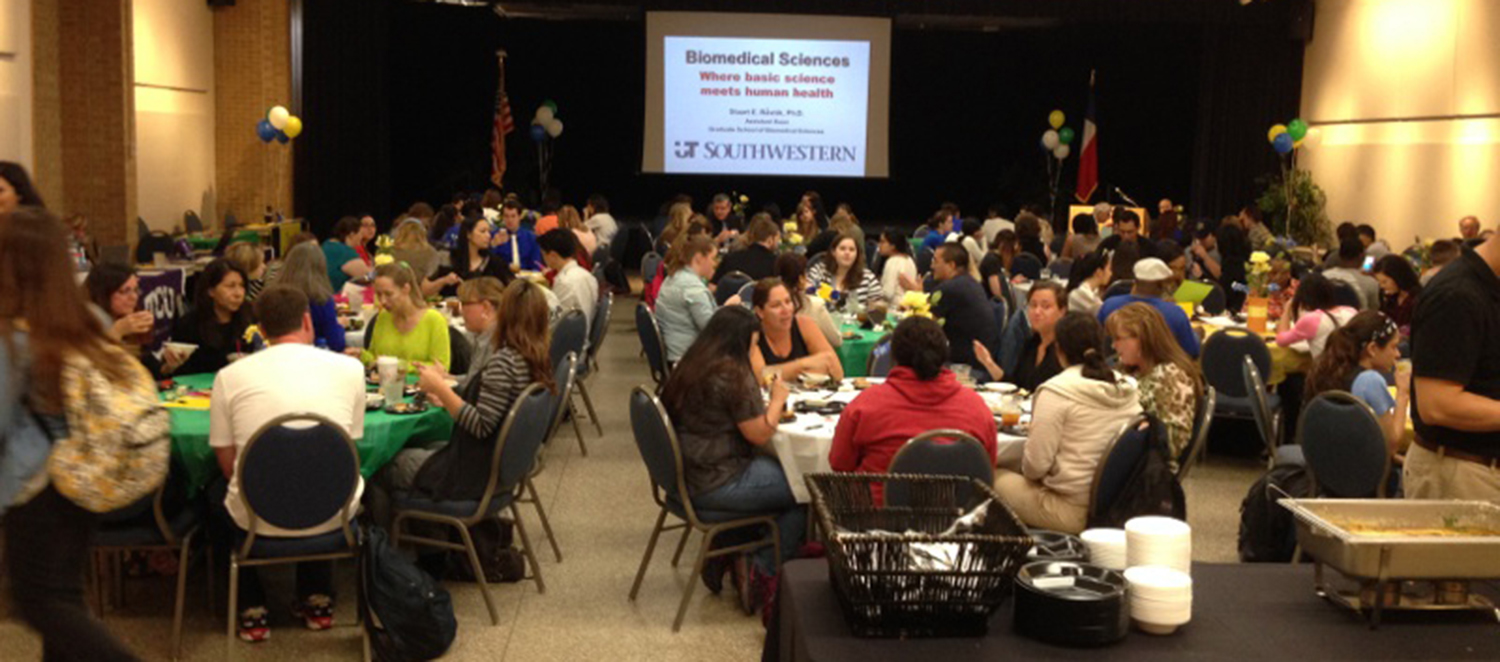By Kyle Huff/reporter

The average biomedical graduate-school student owes “zero, zip, zilch” after school, a University of Texas-Southwestern Medical Center assistant dean said April 1 on NE Campus.
Stuart Ravnik discussed biomedical opportunities, careers and financial benefits during You and Your Future in the Biomedical Field.
“The average college student today will have $30,000-$50,000 in loans by the time they finish their bachelor’s,” he said.
Biomedical students attending UT-Southwestern not only don’t pay for graduate school, they receive a $28,000 yearly salary, Ravnik said.
“Not everyone knows what they want to do in the early stages of college, and that is why TCC is a great stepping stone,” he said. “I am an example that you don’t have to go to a four-year college first.”
Students need to think about what they want to be, how they get there and what is the best way to implement their plans so that they will end up happy, Ravnik said.
“What you choose to do should not be all about the money,” he said. “Physicians work 60 to 70 hours a week, but a physician’s assistant makes only a little less money and might only work part time.”
If people like science, are good at it but generally hate the idea of being around sick people, maybe being a scientist is the profession for them, Ravnik said.
“After you are transferred to a four-year college, you can come to UT-Southwestern and do our SURF program, which is working in a lab for eight weeks and get paid $4,500,” he said.
Ravnik said people don’t realize that biomedical science has many possible perks such as the fame and fortune from the Nobel Prize and the sense of accomplishment from the possible discoveries. Whether one is a leader or part of the team, UT-Southwestern’s scientists go on to many different professions and do lots of great things, he said.
“Being a biomedical scientist is an awesome responsibility and a lot of fun,” he said.

